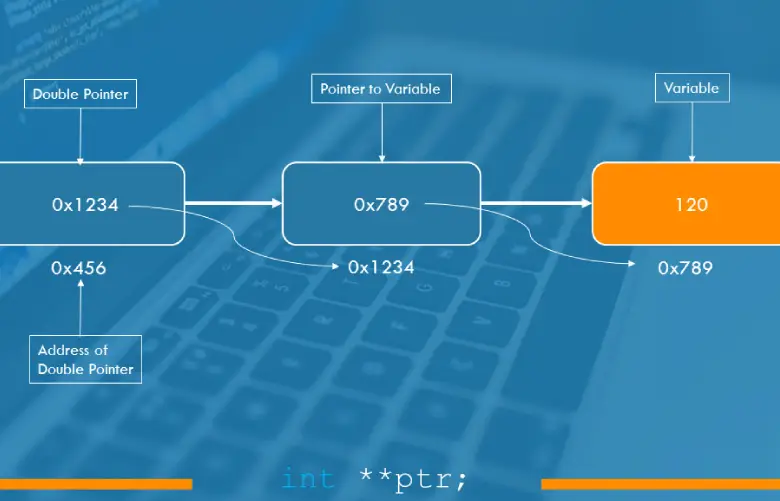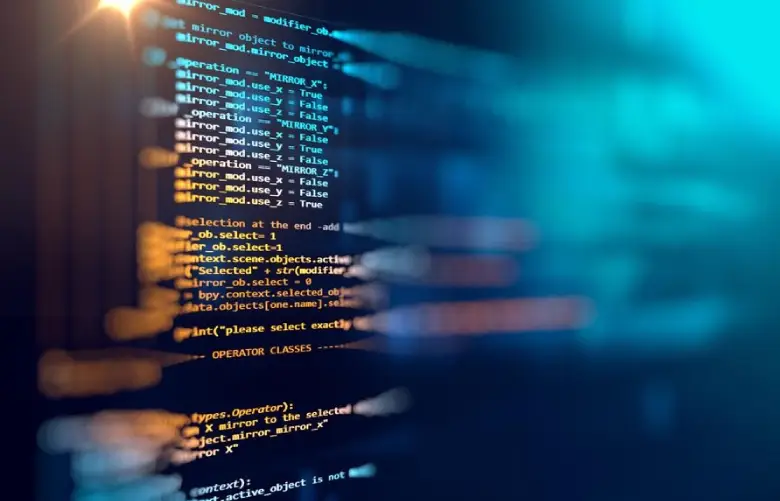Employers ask various C interview questions to candidates to assess their technical knowledge. The way you answer the questions helps the interviewer understand whether you are the right fit for the job. Since your chances of getting the job depend on how well you answer, you should be well-prepared with C programming interview questions. Dive into this article to become familiar with some of the most common C interview questions.
C Programming Basic Interview Questions for Freshers
Some basic C interview questions are as follows:
1. What is C Language?
It is one of the most fundamental interview questions. Start this answer by highlighting that C is a general-purpose and procedural language. You should add in your answer how the C programming language offers low-level access to system memory. Any program written using C must be run via a C compiler to transform it into an executable code for any computer to run.
2. What is a token?
The smallest unit required for creating a C program can be described as a token. So you can call every punctuation and word in a C program a token. A compiler will segment a C program into various tokens before proceeding to the different stages of a compilation process.
3. Why is C called a mid-level programming language?
C combines the characteristics of low-level and high-level languages to become a mid-level language. Programs written using the C language are converted into assembly code. Even though it can support pointer arithmetic like a low-level language, it is machine-independent like a high-level language.
4. What is the use of printf() and scanf() functions?
These types of C interview questions will validate your knowledge of different C language functions. The scanf() and printf() functions are useful for inputs and outputs in the C programming languages. These in-built library functions can be defined in the header file called stdio.h.
5. Why is the static variable used in C?
The static variable in the C programming language is utilized for the following purposes:
- Useful for retaining the value of multiple function calls
- The wide scope of the static variable makes it accessible anywhere in the C program
- Treated as a common value, shared by all methods
- Initialized a single time in the memory heap to minimize memory usage
Check out: Full Stack Development with Cloud for Web and Mobile
6. What is a built-in function in C?
The C compiler creates inline code for built-in functions during compile time. Calling a built-in function can remove the runtime call to the function having the exact name in the dynamic library.
7. What is recursion in C?
Recursion involves making a function call itself. This valuable technique is useful for breaking complicated programs into simple ones. The concept of recursion is a little challenging to understand. Therefore, it is one of the best C programming interview questions to prove to the interviewer that you are a right fit.
8. What is the difference between global int and static int declaration?
The difference between global int and static int stems from where they can be declared. You can declare static variables inside as well as outside the primary function. However, you are always required to declare a global variable outside the primary function.
9. What is a pointer in C?
Some variables in C store the memory address of other variables in the form of their value. These variables are called pointers in C.
10. How is const char* p different from char const* p?
Constant char*p denotes a constant character. Char*const p refers to a constant pointing toward a character.
11. How are macros in the C programming language different from functions?
| Macro | Function |
| Code length can be increased with the help of macros. | Functions cannot affect the code length |
| They need to be preprocessed. | They need to be compiled. |
| Macro can help increase the execution speed. | With functions, the execution speed is somewhat lower. |
| Before compilation, the macro value replaces the macro name. | Transfer of control will occur during the function call. |
| Macro won’t consider the errors during compile time. | Functions will check all errors during compile time. |

Explore: Advantages and Disadvantages of Arrays in C, C++ and Java

POSTGRADUATE PROGRAM IN
Multi Cloud Architecture & DevOps
Master cloud architecture, DevOps practices, and automation to build scalable, resilient systems.
C Programming Intermediate Interview Questions
Some of the most common intermediate-level C programming interview questions are as follows:
12. How to convert a string to numbers in C?
It is one of the C language interview questions where you can talk about different methods. The first method to convert a string to numbers in C is using the stoi() library function. The second method is using the atoi() library function.
13. What is the difference between call by value and call by reference in C?
Call by value denotes that the argument value is imitated into the parameter. Call by reference indicates that the reference argument gets passed to the parameter.
14. What is a NULL pointer in C?
It is one of the C interview questions that you must be able to answer. A null pointer lacks any valid address and is usually assigned to NULL or zero. This macro constant can be found in different C programming header files, including stdio.
15. What is static memory allocation?
Static memory allocation is performed during compile time, and it can help save running time. It is highly preferred in the array and is usually performed from the stack.
16. What is the difference between malloc() and calloc()?
The malloc() function is utilized for making a single memory block of a certain size. If you want to assign more than one memory block to one variable, you can leverage the calloc() function.
17. What is the purpose of the sprintf() function?
It is one of the most frequently asked C programming questions. You will be able to format and store a series of values and characters within the array buffer with the help of the sprintf() function.
18. What functions are used to open and close the file in C language?
The function to open an existing file using the C programming language is fopen(). The function to close a file using the C programming language is fclose().
19. What is the program for swapping two numbers without any third variable?
#include<stdio.h>
#include<conio.h>
main()
{
int a=20, b=10;
clrscr();
printf("Before swapping a=%d b=%d",a,b);
a=a+b;
b=a-b;
a=a-b;
printf("nAfter swapping a=%d b=%d",a,b);
getch();
}
Output:
Before swapping a=20 b=10
After swapping a=10 b=20
20. What is an r-value and value?
It is one of the most important C interview questions and answers for candidates with intermediate-level skills. An “lvalue” denotes an object with an address, which is an identifiable memory location. It is usually located on the left or right side of the assignment operator.
An “r-value” comes without any address or identifiable memory location. This type of expression cannot be allocated to a value. Therefore, you will find it only on the right side of an assignment operator.
Read: Fibonacci series in C
C Programming Interview Questions for Experienced
Some of the most common C language interview questions asked of experienced candidates are as follows:
21. What is the program to print the factorial of a number using recursion?
// C program to find factorial
// of a given number
#include
// Function to find factorial of
// a given number
unsigned int factorial(unsigned int n)
{
if (n == 0)
return 1;
return n * factorial(n - 1);
}
// Driver code
int main()
{
int num = 5;
printf("Factorial of %d is %d", num, factorial(num));
return 0;
}
Output:
Factorial of 5 is 120
22. What is the use of an extern storage specifier?
The extern storage specifier can increase the visibility of C functions and variables. The term extern, short for external, is used by one file to access variables from another file.
23. Write a program to check an Armstrong number.
// C program to determine whether
// the given number is Armstrong
// or not
#include
// Driver code
int main()
{
int n;
printf("Enter Number \n");
scanf("%d", &n);
int var = n;
int sum = 0;
// Loop to calculate the order of
// the given number
while (n > 0) {
int rem = n % 10;
sum = (sum) + (rem * rem * rem);
n = n / 10;
}
// If the order of the number will be
// equal to the number then it is
// Armstrong number.
if (var == sum) {
printf("%d is an Armstrong number \n", var);
}
else {
printf("%d is not an Armstrong number", var);
}
return 0;
}
Output:
Enter Number
0 is an Armstrong number
24. Write a program to reverse a given number.
// C program to reverse digits
// of a number
#include
// Driver code
int main()
{
int n, rev = 0;
printf("Enter Number to be reversed : ");
scanf("%d", &n);
// r will store the remainder while we
// reverse the digit and store it in rev
int r = 0;
while (n != 0)
{
r = n % 10;
rev = rev * 10 + r;
n /= 10;
}
printf("Number After reversing digits is: %d", rev);
return 0;
}
Output:
Enter Number to be reversed :
Number After reversing digits is: 321

Find out: What is Arrays in C, C++
Conclusion
You can explore these C interview questions to be well-prepared for your interview. Always remember that the level of questions will depend on your skills and experience. You should go in for your C programming interview with utmost confidence and provide an accurate display of your knowledge. Moreover, you should show your interviewer that you are always prepared to learn new things about the C programming language and give your best at the job.
What are the key concepts in C programming that I should focus on for interviews?
What are the essential data structures and algorithms frequently asked in C programming interviews?
What are some tips and tricks to excel in a C interview?
Updated on August 14, 2024
